Who Owns President Trump? Future Proofing The Presidency
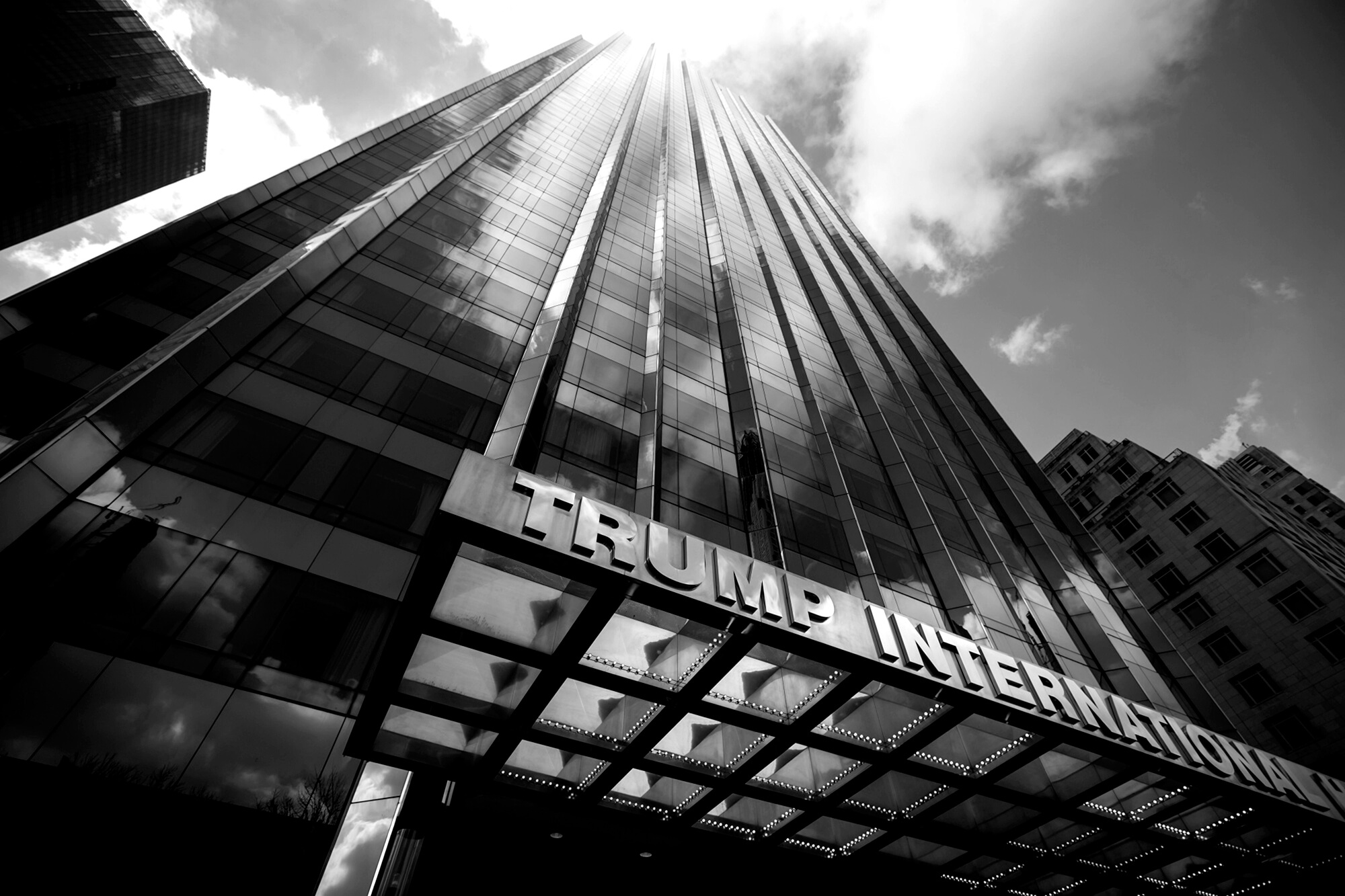
Trump International Hotel & Tower, New York, March 2019. Donald Trump was riddled with conflicts of interest throughout his time in office and abused the presidency to enrich himself and his family. His refusal to divest from his businesses resulted in him violating the constitution by indirectly receiving money from foreign governments.
MICHAEL NAGLE / BLOOMBERG
Who owns the president?
The 45th president was in bed financially with foreign governments, a precedent for America’s enemies to wield influence over the Oval Office. Lawmakers and voters must prevent this from becoming common practice.
As soon as Donald Trump took his hand off Abraham Lincoln’s Bible on Jan. 20, 2017, he broke the oath he had just taken to protect and defend the Constitution of the United States. Never before had the United States elected a president with a sprawling business empire — one that he insisted on keeping ownership of while in office — and Trump stood to have his private organization profit directly from the US government as well as foreign nations while serving in office.
That’s why, within three days of Trump’s being sworn in, Citizens for Responsibility and Ethics in Washington filed a lawsuit against the president to prevent him from illegally receiving money from foreign governments. The violation in question was the foreign emoluments clause of the Constitution, which bars presidents from receiving money or gifts from other nations. And Trump was certainly on the path to breaking the law: Shortly after he won the election in 2016, the Saudi government funneled hundreds of thousands of dollars into his Washington, D.C., hotel by booking 500 of its rooms for their lobbyists.
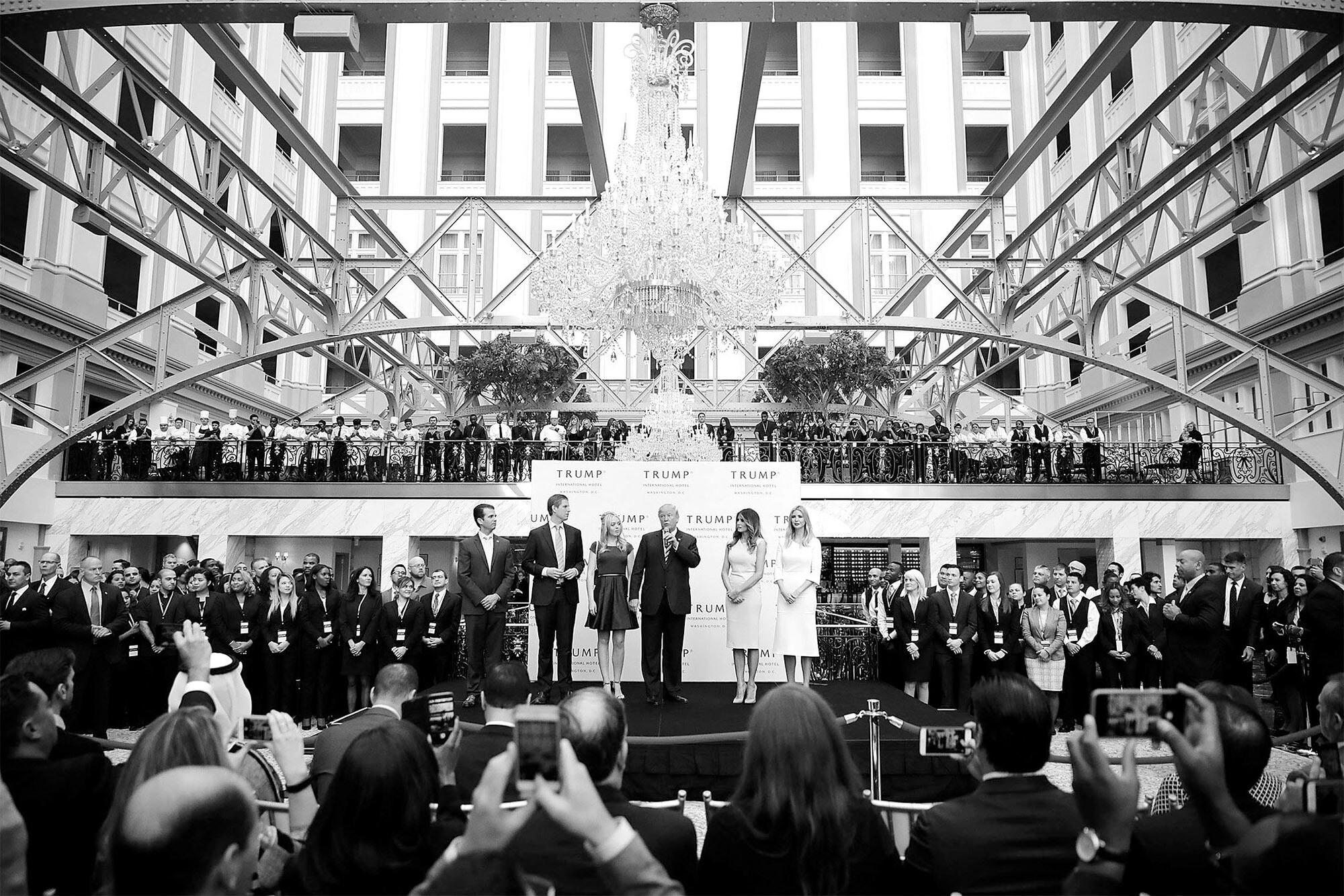
Donald Trump abused the presidency to enrich himself and his family. His business dealings also raised questions about whether he was truly representing the nation’s interest or his own. The government of Saudi Arabia made more than $270,000 in payments to the Trump Hotel after his election, just a few months before he finalized one of the largest arms deals in US history with the kingdom. CHIP SOMODEVILLA / GETTY IMAGES
Pocketing money from foreign governments, whether directly or otherwise, presents exactly the kind of situation that the Founders did not want the president to be in. And that’s because the president might show undue deference to an adversarial government, putting his or her own interests ahead of the nation’s.
Take Saudi Arabia’s payments to the Trump Hotel, which totaled $270,000 between November 2016 and February 2017. Those payments came just a few months prior to Trump finalizing one of the largest arms deals in US history with the kingdom. He also later went on to protect the Saudi crown prince, Mohammed bin Salman, after the brutal killing of Washington Post columnist Jamal Khashoggi. “I saved his ass,” Trump bragged to the journalist Bob Woodward, in reference to bin Salman. “I was able to get Congress to leave him alone. I was able to get them to stop.”
It wasn’t just the hotel payments; Saudi Arabia was still paying the Trump Organization tens of thousands of dollars a year for the floor in Trump World Tower that it purchased for $4.5 million in 2001. This is not to say it’s been proved that Trump acted the way he did with Saudi Arabia because of his business ties with them. But it is to say that the Saudis’ money may have, in fact, influenced him. After all, Trump, who was suffocating in debt, probably appreciated the payments, and he certainly didn’t discourage the Saudis from patronizing his businesses.
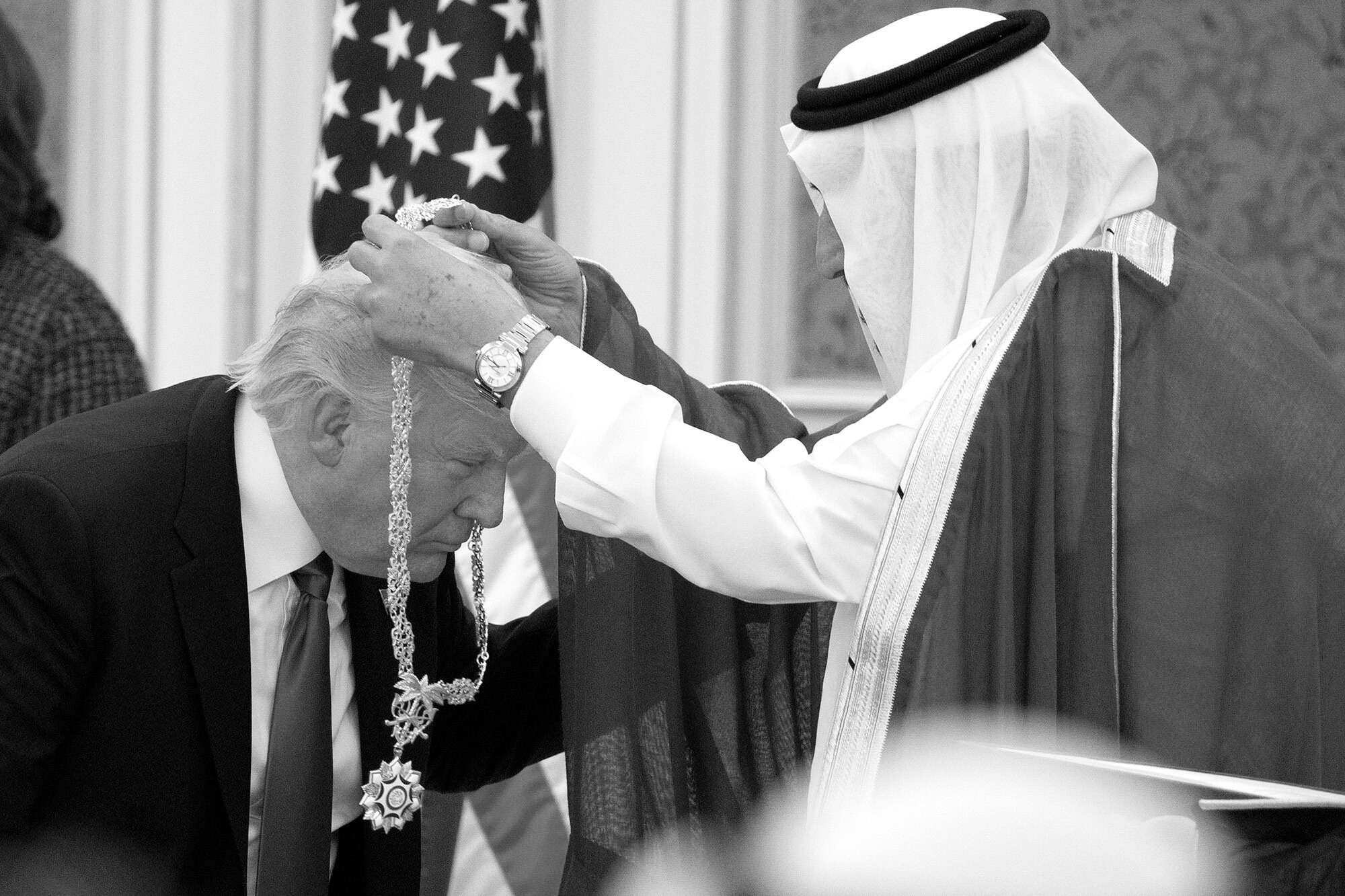
Saudi King Salman presented President Donald Trump with the highest civilian honor, the Collar of Abdulaziz Al Saud, at the Royal Court Palace, in Riyadh. President Trump bragged about having protected the Saudi crown prince, Mohammed bin Salman, after the brutal killing of Washington Post journalist Jamal Khashoggi. EVAN VUCCI / AP
Yet despite all of this, Trump faced no legal consequences and was able to continuously violate both the foreign and domestic emoluments clauses throughout his time in office. And that’s because the lawsuit that CREW filed dragged on for four long years. (It was initially dismissed on the grounds that the plaintiff had no right to sue the president, a decision that was reversed on appeal, and was finally dismissed by the Supreme Court only after Trump left office.) All the while, Trump visited his properties hundreds of times — charging taxpayers for the Secret Service’s use of them — and many foreign officials spent their money at his hotels.
That’s just scratching the surface of Trump’s unprecedented conflicts of interest. He was also hundreds of millions of dollars in debt — to whom, the public only partially knows. That’s why Congress ought to ensure that future presidents have as few conflicts of interest as possible. And in order to do that, it should start with two reforms.
“Congress ought to ensure that future presidents have as few conflicts of interest as possible.”
The first is to require all future presidents to divest themselves of their businesses and other assets that could pose a potential conflict of interest. The reason for this is simple: No matter how well intentioned a president is, their financial self-interest is bound to cloud their judgment, wittingly or otherwise, when making decisions that affect the whole nation. And though divestment may be perceived as an extreme solution — with some arguing that it would discourage successful businesspeople from running for president and therefore limit the talent pool — it would dramatically reduce the potential for presidents to be in bed financially with foreign adversaries, precluding the need to legally enforce the emoluments clause while someone is in the White House.
The second is to require all future presidents to publicly release their tax returns. Transparency is key to preventing corruption, especially in a democracy. Tax returns would provide far greater insight into a candidate’s potential conflicts of interest, and voters could then decide for themselves whether the candidate was too prone to act in his or her own self-interest. That electoral threat alone could deter would-be presidential candidates from running for office prior to eliminating their financial conflicts of interest.
Before Trump, every president since Jimmy Carter had disclosed their full tax returns in an effort to be transparent about any potential conflicts of interests upon entering office. But that tradition was merely a norm, and because norms are generally enforced by the desire to avoid being shamed, Trump easily maneuvered his way out of it by being himself: shameless. And in resisting the public pressure to release his tax returns, Trump has now set a precedent that candidates do not, in fact, have to release their tax returns. (This has already proved to be the case; in the 2020 Democratic primaries, billionaire Mike Bloomberg followed Trump’s lead and failed to disclose a fully transparent financial report.)
That’s why this norm should be turned into law by Congress.
Of course, transparency alone can only go so far. The public knew, for example, that Trump owned hotels where foreign dignitaries could stay, but that knowledge didn’t prevent him from indirectly receiving money from foreign governments by those means. And Trump’s tax returns — leaked to the press in 2020 — did finally get a public viewing, and yet over 74 million voters chose to vote for him anyway. Saving our democracy from corruption will always rely in part on voters taking conflicts exposed in financial disclosures seriously.
The same is true for divestment: Though it would have dramatically limited Trump’s conflicts of interests, some conflicts, whether political or financial, are always bound to arise given the president’s central role in government. But when they do, the public ought to know, because while Trump is historically corrupt, neither the courts nor Congress held him accountable; in the end, only the voters will. 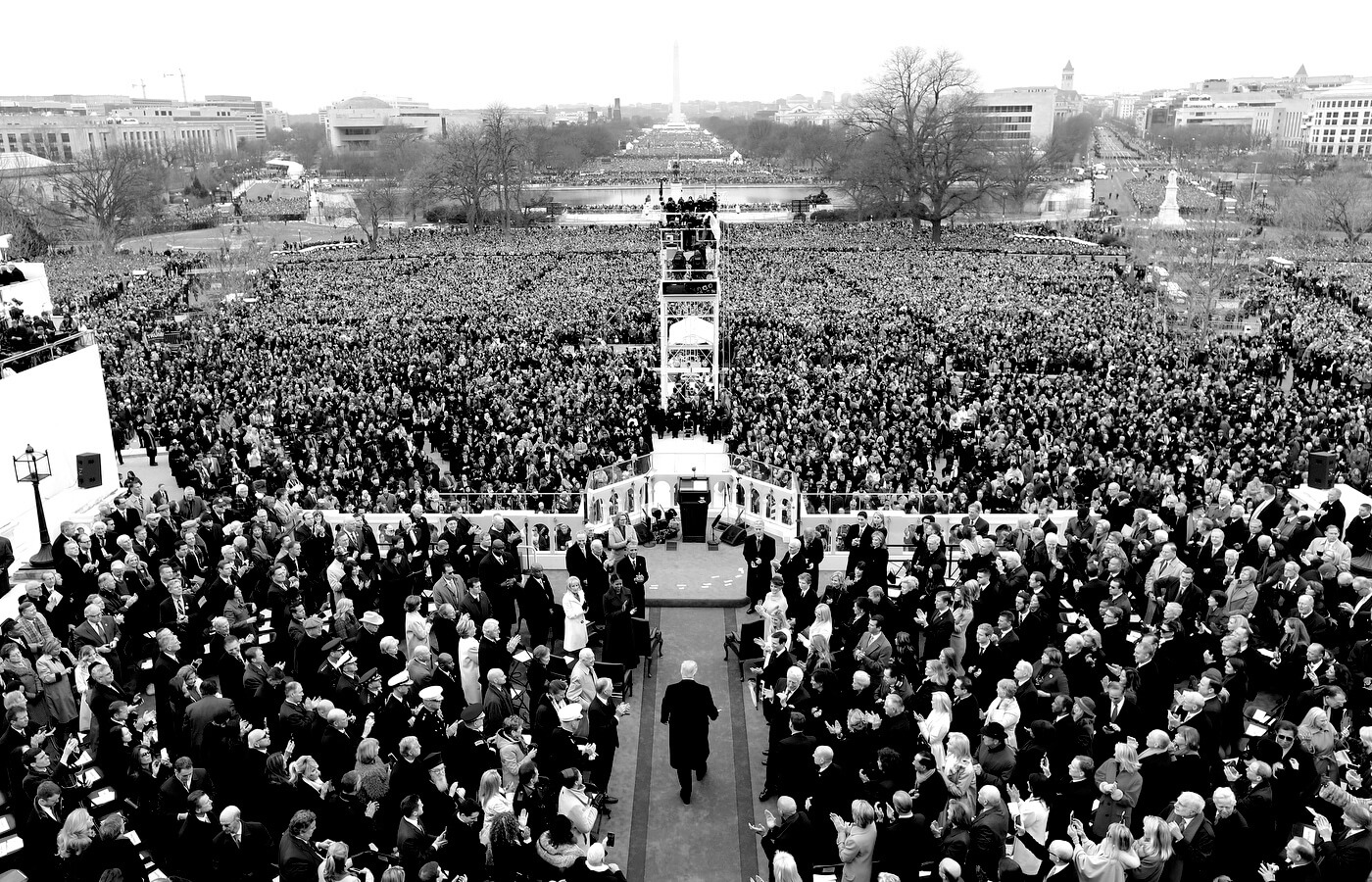
A treasure map for an American tyrant
Donald Trump exposed the weaknesses in our system of government that could now be exploited by a corrupt leader with control of the White House. In this series, the Globe editorial board outlines the urgent reforms needed to prevent the rise of an American tyrant — and to protect our democracy for posterity.
Before the day Donald Trump moved into the White House in 2017, Americans had never had to contend with a president in such deep financial trouble — and with such determination to conceal his true finances from the public. Trump’s business empire — the one he espoused during the campaign as an example of his purported financial acumen — was nothing more than a hollow gold-plated shell. While he was dumping money into his hotels, his golf courses, and his real estate deals, they were netting him almost nothing but significant losses year after year. By the time he was running for reelection, Trump was over $400 million in debt, most of which would have been due during his second term should he have won in 2020.
And yet for nearly four years, there was effectively nothing whatsoever the public could do about it. As was the case for so many of the countless outrageous abuses of his presidency, the former president largely got away with serving a full term in which he bargained with foreign leaders, signed tax legislation, and named financial regulators, without ever coming clean about his own personal debts and the conflicts of interest and opportunities for corruption they created. While there are supposed to be laws and limits on the presidency, Trump was unrestrained, exposing just how toothless those safeguards have become and just how urgently the nation needs to reform the office of the presidency itself.
Donald Trump at a campaign event in Vienna, Ohio, March 2016. Trump began one of the most corrupt presidencies in US history on the campaign trail when he failed to disclose his full tax returns and his hundreds of millions of dollars of debt. MARK MAKELA / THE NEW YORK TIMES
Presidents in a democratic system of government are not meant to be able to extract personal profits from government service — or hand out pardons to imprisoned buddies, pervert justice, or foment an insurrection. That’s the promise of democracy: that it will be superior to these authoritarian tendencies of tyrants and kings. When these laws and norms are violated, they should be backed up by severe consequences if that democracy is to maintain its integrity. But right now, as it stands after Trump’s four years in office, American presidents can, in fact, commit all those abuses — and suffer little more than losing their Twitter account.
Trump may not have destroyed the American presidency, but he did put the institution on a perilous path. Because while Trump himself has been sitting in Mar-a-Lago brooding over his loss to Joe Biden, all the weaknesses in our legal and constitutional system that he exploited remain, waiting for a future presidential miscreant to take advantage of them — maybe even for Trump himself, if he is reelected in 2024. That’s why Congress and the current president must act fast and impose more durable legal guardrails on the commander in chief. By passing stronger anti-corruption laws, strengthening existing norms and creating new ones, and deterring future presidents from abusing their power by making an example of Trump and holding him accountable, the country can protect itself against future — and potentially far more devastating — presidential corruption and misconduct. The nation can, and must, prevent the rise of an American tyrant.
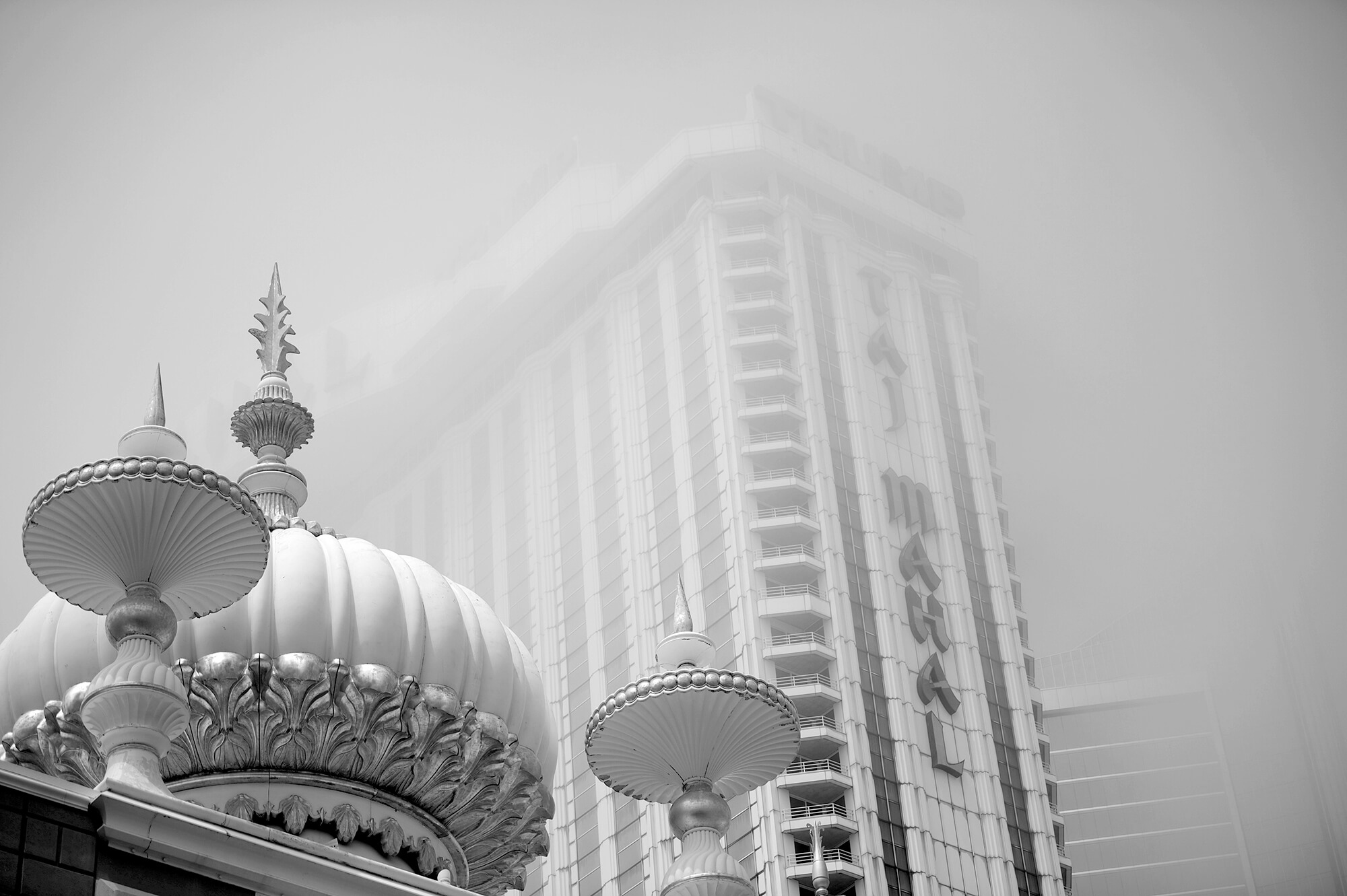
Donald Trump’s purported financial acumen helped him ascend to the nation’s highest office. But it was little more than gold veneer for his growing debts and his abuse of the presidency to enrich himself and his family. MARK MAKELA / THE NEW YORK TIMES
As hard as it might be to imagine in our hyperpolarized political climate, imposing new restrictions on the presidency ought to be a bipartisan cause. For those Trump supporters who delighted in the former president’s transgressions, and loved the way he “owned the libs” by ignoring their nattering on about ethics, remember: Corruption knows no party, and the next crooked president could be a Democrat.
We start with Trump’s stonewalling on his personal debt not because concealing his finances was necessarily the worst offense of his presidency, but because it was surely one of his most brazen. Even low-ranking civil servants have to disclose their personal debts in order to guard against corruption, and yet somehow the man in the Oval Office did not. It’s not that Americans had no idea that Trump was a lousy or crooked businessman — that fact was already well documented. But Trump’s refusal to disclose his taxes and other personal financial details left many wondering what more he was hiding. Did he pay federal taxes? How much? Did he have significant debts to foreign actors or others to whom he would be beholden?
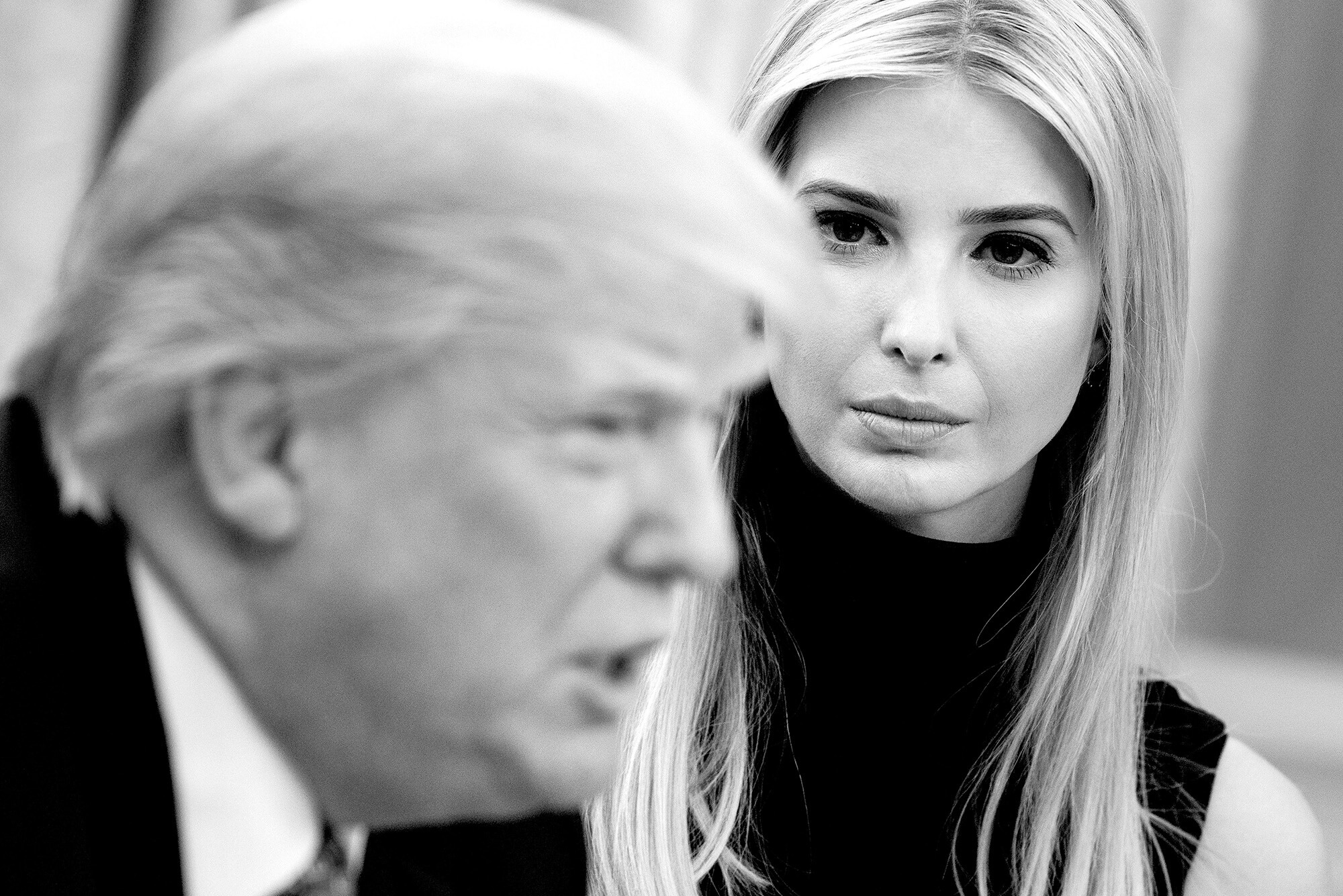
Donald Trump took nepotism to a new level, populating the White House with loyalists and family members unqualified for their roles, including his daughter Ivanka Trump and his son-in-law Jared Kushner.
BRENDAN SMIALOWSKI / AFP/GETTY IMAGES
A sordid family affair
Donald Trump exploited loopholes to build a White House rife with nepotism. Lawmakers must close them.
On the 2016 campaign trail, Donald Trump told voters that if they elected him, he would surround himself with the “best” and “most serious” people — a dubious claim given that he had long associated with fraudsters and crooks during his turbulent career in the private sector. Quickly after he was elected, however, it became clear that Trump planned on running the government the same way he ran his business: Hire his family to top positions and flood the White House with loyalists. The result was corruption, incompetence, and what clearly did not come close to meeting the bar of “best” or “most serious.”
In fact, two of Trump’s earliest White House appointments were glaring examples of his willingness to engage in petty corruption: On Jan. 9, 2017, Trump hired his son-in-law Jared Kushner as a senior White House adviser, which, only a few months later, was followed by the new president giving a similar role to his daughter Ivanka Trump.
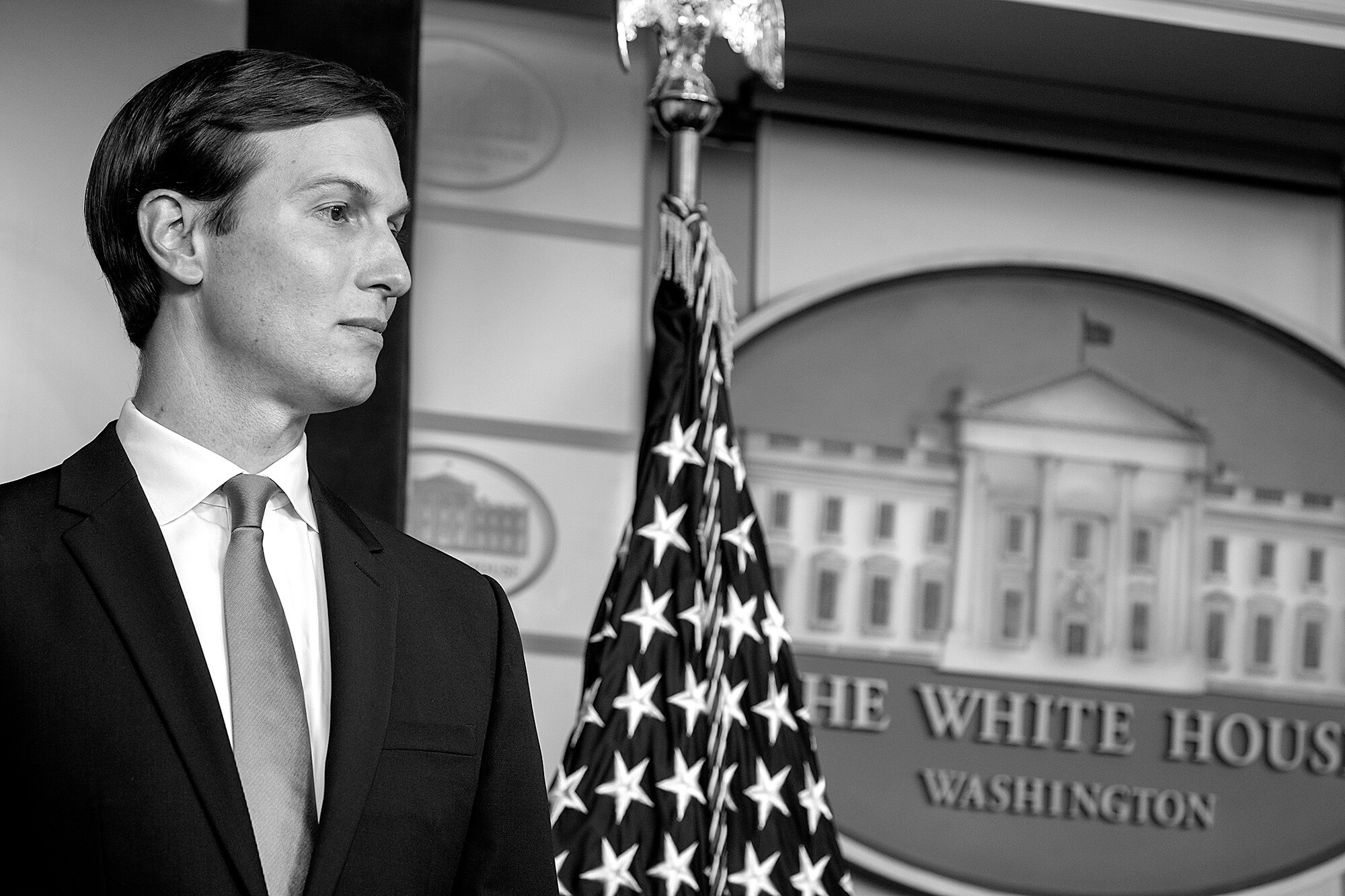
Donald Trump’s decision to appoint his own family members to high-ranking White House positions resulted in disastrous policy choices, as was the case when his son-in-law Jared Kushner took a leading role in the administration’s pandemic response despite his lack of experience. TASOS KATOPODIS / GETTY IMAGES
These appointments were troublesome for several reasons. First, neither Kushner nor Ivanka Trump had prior qualifications for the work they were assigned, meaning that their appointments were made on the grounds that they had a close relationship with the president. (That relationship would later allow them to get special treatment and give them the ability to flout certain ethics rules.) Second, though both Kushner and Ivanka waived their White House salaries, they still stood to profit from their role in the administration — expanding the Trump family’s use of the presidency as a for-profit operation. And third, such clear displays of nepotism by public officials are illegal — a law that technically applies to the president as well, but in which Trump managed to find loopholes.
While serving in the Trump White House, Ivanka and Kushner did indeed leverage their positions to bolster their profits. Like Trump, neither of them had fully divested from their businesses, and Kushner sold his stake in one of his businesses only after it directly benefited from the tax bill that his father-in-law signed into law. Kushner’s family’s real estate company came under scrutiny on several occasions because his family members appeared to lean on their relationship with the administration. At one business event in Beijing, Kushner’s sister promoted an EB-5 visa program — which grants immigrants a path to citizenship if they invest substantially in a company that creates jobs in the United States — and essentially implied that her relationship with her brother would help expedite a pathway to citizenship for investors in a Kushner-owned property before the visa program rule was set to change the minimum investment from $500,000 to $900,000. And Kushner’s family company had business dealings in Israel even as one of his chief responsibilities included Middle East policy.
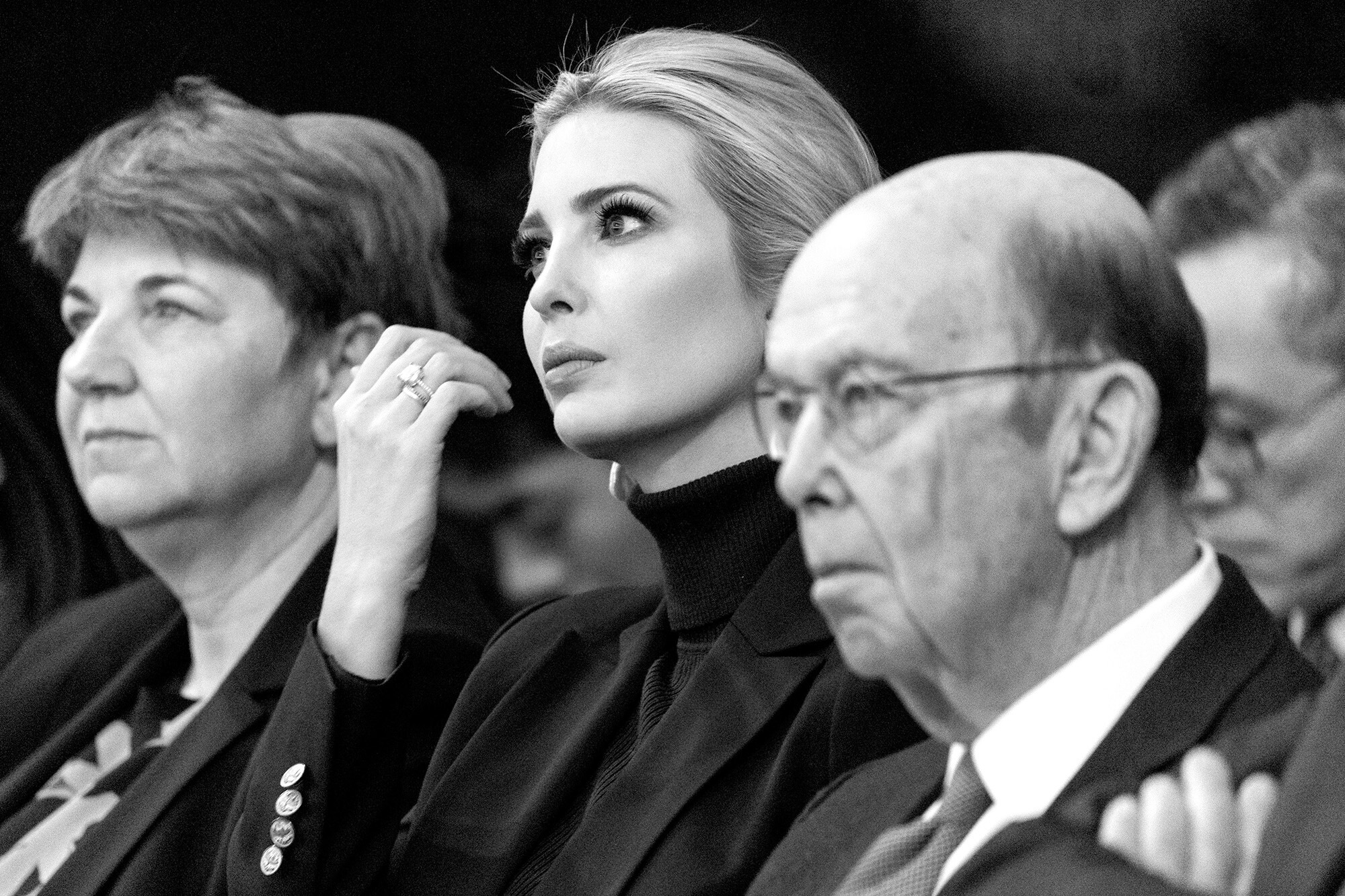
The fact that Ivanka Trump and Jared Kushner did not take government salaries while serving in the White House did not keep them from enriching themselves while holding public office. ALESSANDRO DELLA VALLE / KEYSTONE VIA AP
Trump was hardly the first president to appoint relatives to top jobs; John F. Kennedy famously nominated his brother for attorney general and appointed his brother-in-law as the Peace Corps’ first director. Given that nepotism is an easy opportunity for public officials to turn their public office into a money-making enterprise — one that the Trump family clearly took advantage of — it’s important to crack down on it at every level of government. After all, nepotism is an act of self-enrichment in and of itself and a quintessential example of petty corruption that undoubtedly sows distrust in government.
“Nepotism is an act of self-enrichment in and of itself and a quintessential example of petty corruption.”
That distrust would be justified. Filling up key government posts with close relatives of the president, for example, will probably result in a staff that’s more loyal to the president than they are to government institutions, or even to democracy itself. Nepotism is also unlikely to produce the most competent government; Kushner, for example, was profoundly unqualified for his wide-ranging role, and the American people paid the price when he took a leading role in the Trump administration’s coronavirus response.
In democracies, nepotism can quickly grow rampant. In India, for example — the world’s largest democracy — political dynasties have dominated the nation’s politics since the country gained independence from the British. In fact, in 2009, nearly a third of the country’s elected members of parliament had relatives who served in public office immediately before them or at the same time. And that can easily become a relatively accepted norm: According to one survey, 46 percent of Indians said that they would “prefer” voting for a candidate who comes from a political family. (India has been consistently ranked by international corruption watchdog groups as one of the most corrupt countries in the world.)
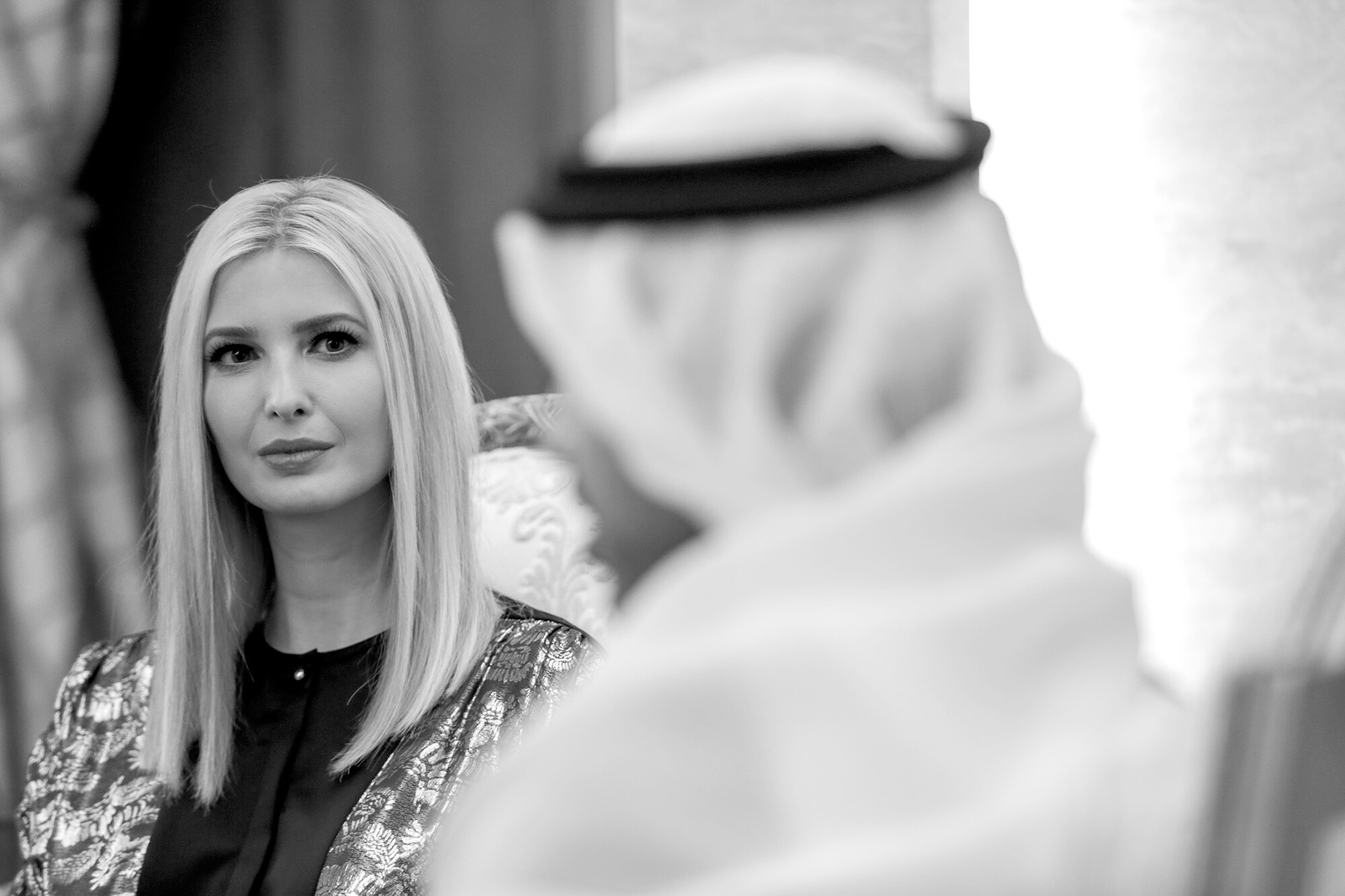
Filling government posts with the president’s family members risks officials becoming more loyal to the president than the democratic institutions they are supposed to serve. CHRISTOPHER PIKE / POOL PHOTO VIA AP
In order to eradicate nepotism from government, an example must be set from the very top, which is why Congress should ensure that anti-nepotism laws apply to both the president and vice president.
When Trump hired Kushner, some legal scholars argued that the president does not have to abide by the federal anti-nepotism statute. That’s why, in order to ensure that this degree of corruption does not take place, Congress should pass a bill to make explicit that the president cannot appoint a relative to any official government post, even if they forgo a salary. In the event that a president’s relative is widely perceived to be the best qualified for a certain role, that appointment should require a waiver from Congress so that the candidate can be evaluated on their merits. Appointments of family members should be the exception, not the norm.
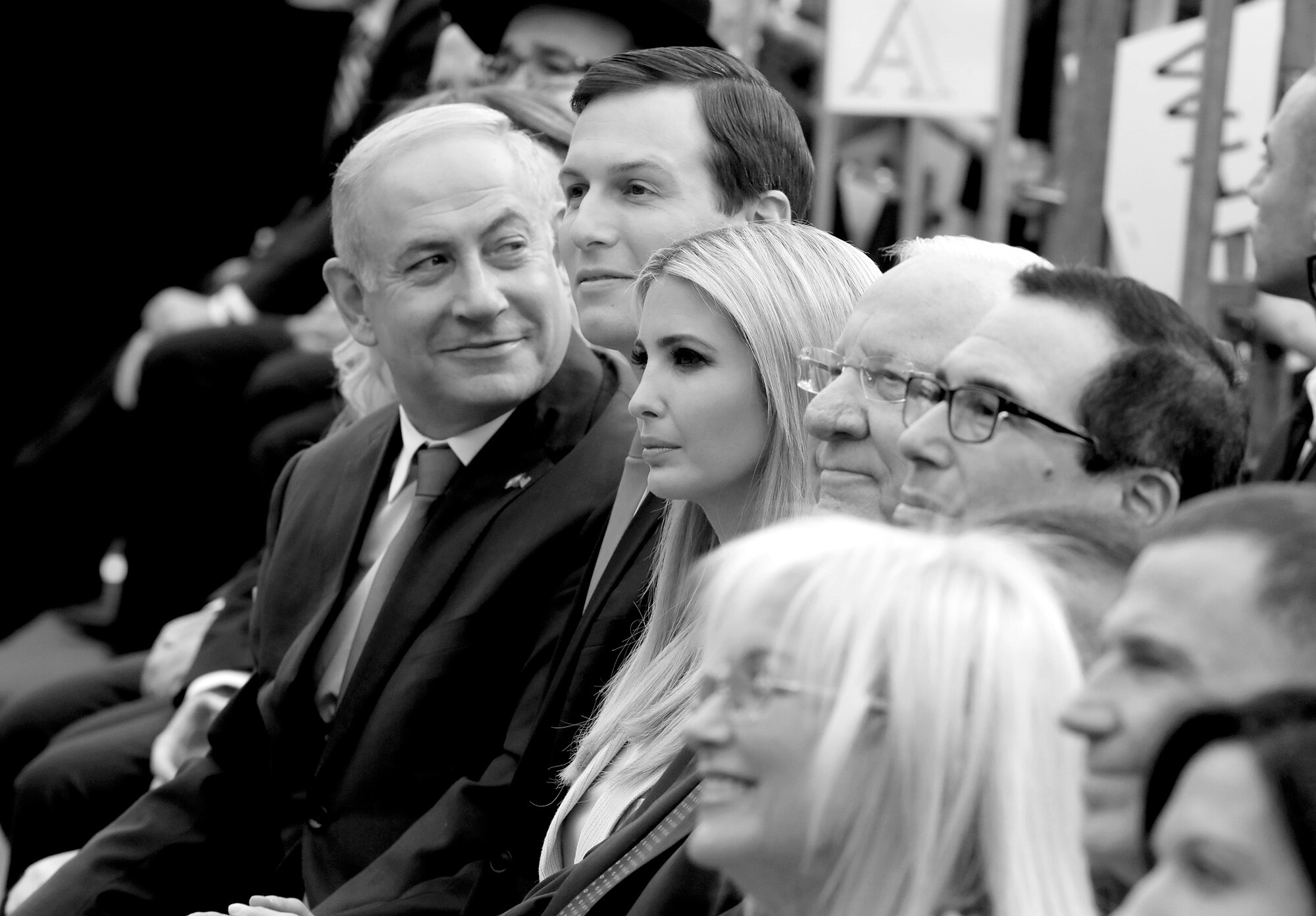
Nepotism erodes trust in government and often results in wholly unqualified people being entrusted with critical roles to the nation’s interests, whether negotiating peace in the Middle East or leading pandemic response. MENAHEM KAHANA / AFP/GETTY IMAGES
There’s also the issue of fixing the existing law. While there does exist a federal anti-nepotism statute, the penalty is to withhold salary from the appointee, and both Kushner and Ivanka had already waived their government salaries. But since that didn’t stop them from using their positions in government to make money in the private sector, it’s clear that anti-nepotism laws should have stricter penalties, including job termination if the appointment is proved to have been made on the grounds of an employee’s relationship to the president rather than their qualifications.
Given just how many conflicts of interest consumed the Trump family while they were in the White House, it’s time to ensure that no future president will follow Trump’s example. Because if nepotism is not seriously addressed, then Trump’s presidency would only serve as a blueprint for other corrupt business families to run for office to expand their wealth in the future.
Nepotism is a defining characteristic of monarchies — a system of government the Founders specifically wanted to expel from the United States. So it’s time for Congress to stop, even on occasion, letting the president be king.
Anyone can join.
Anyone can contribute.
Anyone can become informed about their world.
"United We Stand" Click Here To Create Your Personal Citizen Journalist Account Today, Be Sure To Invite Your Friends.
Humic & Fulvic Liquid Trace Mineral Complex
HerbAnomic’s Humic and Fulvic Liquid Trace Mineral Complex is a revolutionary New Humic and Fulvic Acid Complex designed to support your body at the cellular level. Our product has been thoroughly tested by an ISO/IEC Certified Lab for toxins and Heavy metals as well as for trace mineral content. We KNOW we have NO lead, arsenic, mercury, aluminum etc. in our Formula. This Humic & Fulvic Liquid Trace Mineral complex has high trace levels of naturally occurring Humic and Fulvic Acids as well as high trace levels of Zinc, Iron, Magnesium, Molybdenum, Potassium and more. There is a wide range of up to 70 trace minerals which occur naturally in our Complex at varying levels. We Choose to list the 8 substances which occur in higher trace levels on our supplement panel. We don’t claim a high number of minerals as other Humic and Fulvic Supplements do and leave you to guess which elements you’ll be getting. Order Your Humic Fulvic for Your Family by Clicking on this Link , or the Banner Below.
Our Formula is an exceptional value compared to other Humic Fulvic Minerals because...
It’s OXYGENATED
It Always Tests at 9.5+ pH
Preservative and Chemical Free
Allergen Free
Comes From a Pure, Unpolluted, Organic Source
Is an Excellent Source for Trace Minerals
Is From Whole, Prehisoric Plant Based Origin Material With Ionic Minerals and Constituents
Highly Conductive/Full of Extra Electrons
Is a Full Spectrum Complex
Our Humic and Fulvic Liquid Trace Mineral Complex has Minerals, Amino Acids, Poly Electrolytes, Phytochemicals, Polyphenols, Bioflavonoids and Trace Vitamins included with the Humic and Fulvic Acid. Our Source material is high in these constituents, where other manufacturers use inferior materials.
Try Our Humic and Fulvic Liquid Trace Mineral Complex today. Order Yours Today by Following This Link.








The Military order of the Society of Jesus (Hating Jesus, or using Jesus as a tool.) owns Trump. Sure if you involve esoteric and esoteric it becomes more complicated. I say nobody knows, then it is high-ground leveled.
Correction “exoteric and esoteric”
Exoteric refers to knowledge that is outside and independent from a person’s experience and can be fully appreciated or understood by anyone (related to common sense), in contrast to esoteric knowledge (understood or appreciated by few).
Esoteric refers to – inner cabal (inner circle, owners of), could be a rotten from the inside Apple for instance.
Trump is a mass murdering traitor and the Qfrauds are his accomplices, lower level Cult members who are the useful idiots for the Vax Daddy.
My Fellow Americans:
Trump is OWNED by the Jews, the same way a pimp OWNS a whore!
It seems there are multiple sects of Jews he Kowtows to, but the worst of them seem to be the Chabads, which are even more perverted and psychotic then What-A-Yahoo!
JD – US Marine: Voltaire (circa: 1700′s) – “To learn who rules over you, simply find out who you are not allowed to criticize”.
.